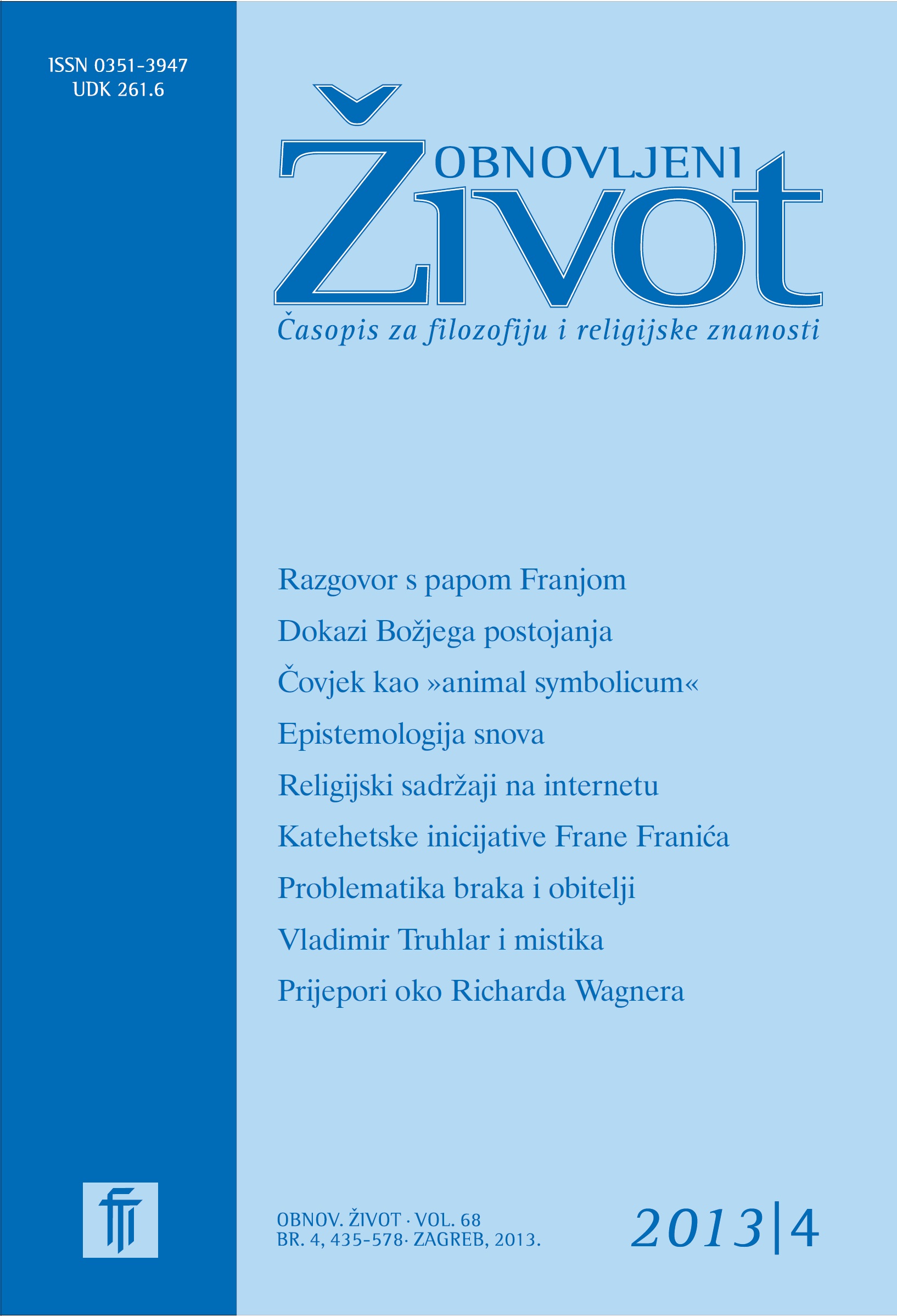Vladimir Truhlar and the Mysticism
From Spiritual Theology to Theology of Spiritual Experience
Keywords:
Vladimir Truhlar, mysticism, spiritual experienceAbstract
Vladimir Truhlar, a Slovenian Jesuit, was one of the founders of the Institute of Spirituality at the Pontifical Gregorian University and a professor at the same Institute for 25 years. His scientific interests revolved around three themes within the young discipline of spiritual theology: content, method and mysticism. Among the first to do so, Truhlar postulates that the spiritual experience is the objectum formale of spiritual theology. As his method he introduces the use of symbols in the interpretation of spiritual experience. He abandons a previous understanding within the realm of the theology of mystical experience concerning the qualitative difference between mystical and ordinary spirituality and, in compliance with the teachings of the Second Vatican Council, he considers that mysticism is a possiblitiy in everyday life. During his academic activities Truhlar came up the developmental path from spiritual theology to the theology of spiritual experience. The three themes which Truhlar introduced into the study of spiritual theology have remained a challenge and signpost in the endeavours of many experts. At the Institute of Spirituality work continues on the deepening and widening of the question of content and method of spiritual theology; also, efforts are being made to achieve a better understanding of the reality of spiritual experience. By using specific examples the author portrays the more recent research done by professors at the Institute of Spirituality at the Pontifical Gregorian University. Vladimir Truhlar has begun a process within the field of spiritual theology which continues even today.
Downloads
Published
Issue
Section
License
Jednom prihvaćeni članak obvezuje autora da ga ne smije objaviti drugdje bez dozvole uredništva, a i tada samo uz bilješku da je objavljen prvi put u Obnovljenom životu. Uredništvo će obavijestiti autora o prihvaćanju ili neprihvaćanju članka za objavljivanje.
Članci objavljeni u časopisu se, uz prikladno navođenje izvora, smiju besplatno koristiti u obrazovne i druge nekomercijalne svrhe.


